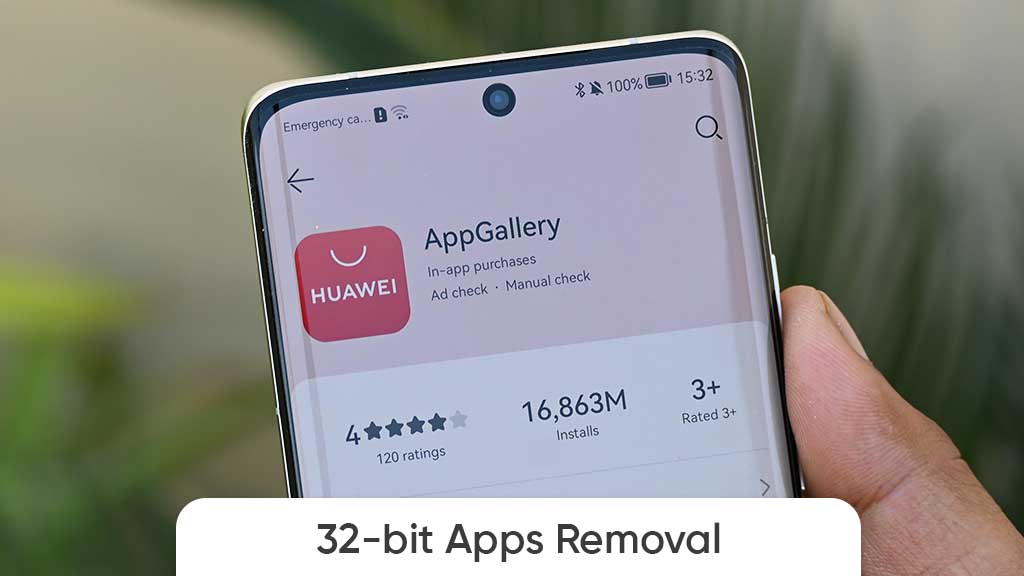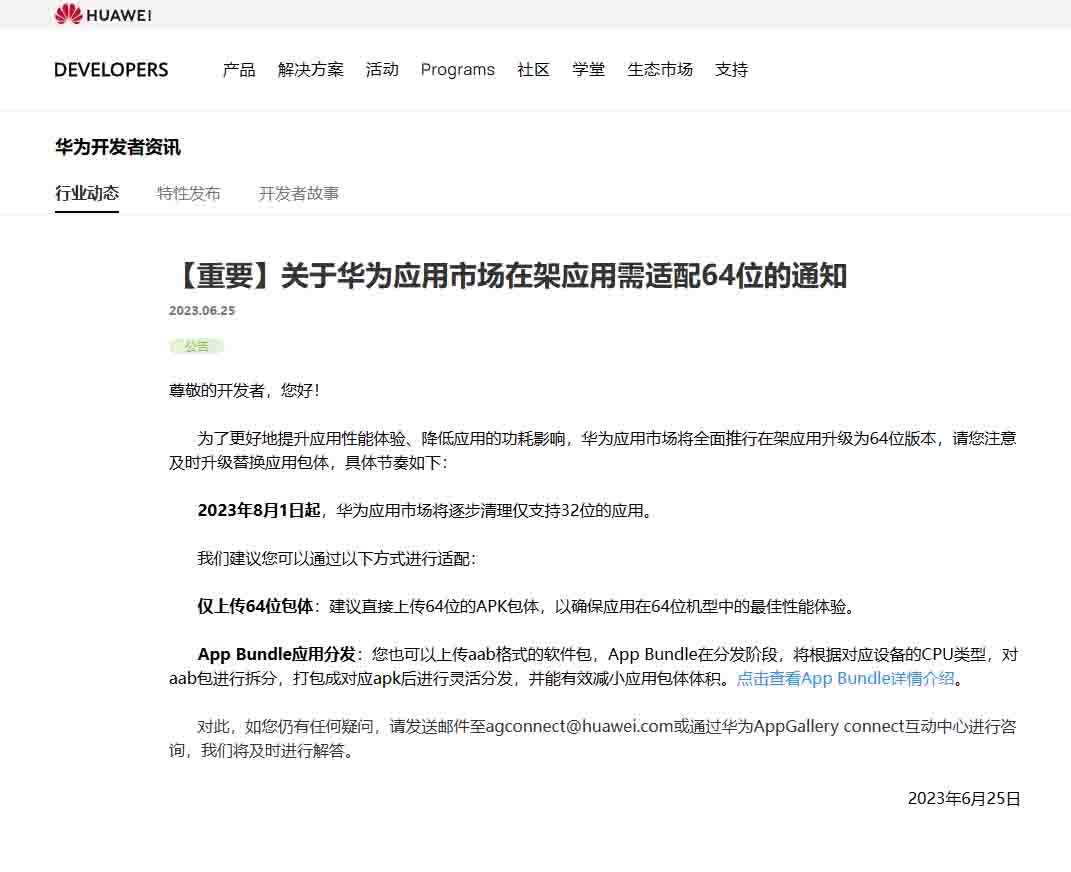News
Huawei will remove all 32-bit apps from AppGallery, Xiaomi, Vivo and Oppo to follow

Huawei has started notifying the developers that AppGallery will remove all of the 32-bit apps. This is to increase the adaptation rate of 64-bit apps on the platform and the move is closely followed by Xiaomi, Vivo, and Oppo.
Last year, Huawei announced that it will stop supporting new 32-bit apps on AppGallery with an effective implementation date of September 1, 2022. Also, the company noted that all developers must upload 64-bit apps on AppGallery starting February 1, 2023.
Timeline of removal:
Huawei AppGallery will officially start to remove 32-bit apps from August 1st, 2023. Thereafter, only 64-bit apps will remain on the shelves. Huawei said to take this step In order to improve the application performance experience and reduce the impact of application power consumption.
What to do:
Developers will have to upload a 64-bit version of the app in the listing in order to ensure optimum performance for applications. Alternatively, AppGallery also supports software packages in “aab” format.
During the distribution phase of the App Bundle, the aab package will be split according to the CPU type of the corresponding device. Then packaged into the corresponding APK for flexible distribution. Overall, it could effectively reduce the Applied volume.

Adaptation:
Starting this year, new Arm-based Android phones are deprecating the installation and use of 32-bit applications. As of March 30, 2023, the adaptation rate of apps used in OPPO, vivo, and Xiaomi phones is as high as 93%, and the adaptation rate of all applications reached 90%.
According to past reports, 64-bit migration is an inevitable direction for the development of mobile application ecology, which means that applications will achieve greater improvements in terms of security, performance, and power consumption.
As early as 2015, Apple began to require developers to adapt to 64-bit, but because the Android camp is more complicated and confusing, the adaptation progress is significantly slower. However, phone makers are now taking a new direction on this matter and reaching out to improve the adaptation 64bit platform.






